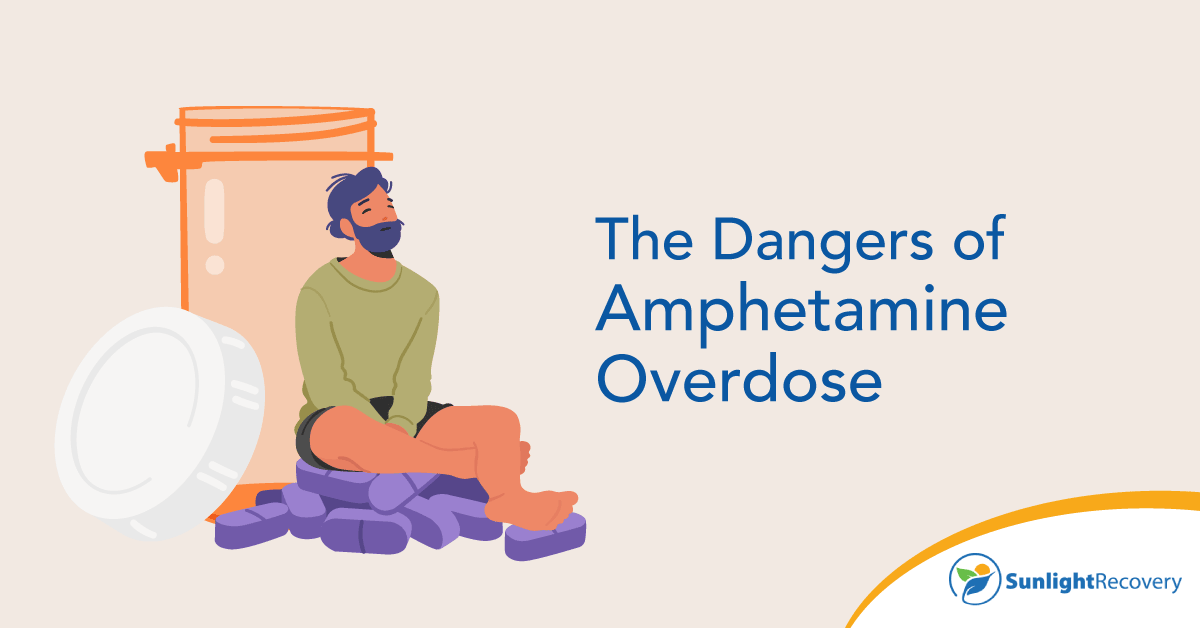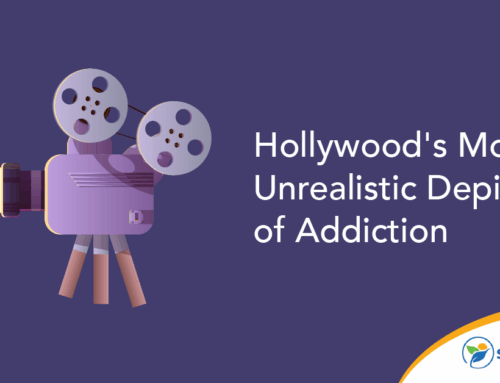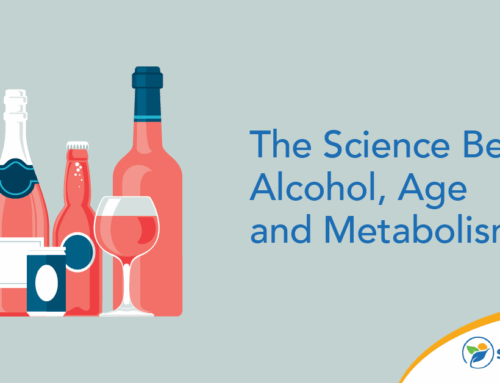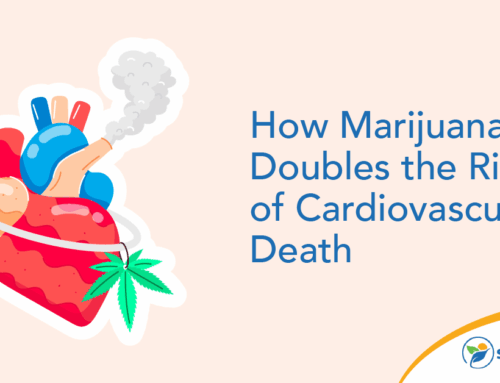Amphetamines are powerful psychostimulants that speed up the body’s systems and pose risk of toxicity and overdose. These medications work well when treating certain medication conditions but have a significant potential for overdose. From 2020 to 2021, the number of drug overdose deaths from psychostimulants increased by almost 33% in the United States, making it a major health problem.
Despite these numbers, more than 36 million people around the world used amphetamines in 2021. This blog post explores the dangers of amphetamine abuse, including amphetamine overdose, how to recognize the symptoms and risks and how to employ prevention strategies.
Understanding Amphetamines and Their Use
Amphetamines are stimulants used to treat a wide range of conditions, such as ADHD and narcolepsy. These drugs increase the levels of the neurotransmitter dopamine in the brain to make the user feel more awake, confident and energetic. Individuals taking amphetamines may find they require less sleep and food and may seem more talkative or aggressive. Legal forms of amphetamines include Adderall and Ritalin, while illicit substances include methamphetamine, speed, ice and cocaine.
Highly addictive, amphetamines have the potential for misuse and even overdose. Over time, it can take more of the medication to achieve the same level of euphoria. Long-term use can also cause anxiety, depression, mood swings and mental health issues such as paranoia and delusions.
The high an individual experiences from taking amphetamines lasts anywhere from 8 to 24 hours, depending on the medication, the dose and an individual’s metabolism, but the drug can stay in the system for up to a week, making detox a long process.
Symptoms of Amphetamine Overdose
Amphetamine overdose can occur accidentally or on purpose when the drug is misused or when taken in large amounts. The severity of effects depends on the amount taken, an individual’s tolerance level and their physical and medical history. Multiple risk factors, such as failing to store a medication in its original container, not following the dosage instructions and a prior history of addiction and mental disorders, can increase a person’s risk of a drug overdose. A drug overdose can lead to a wide range of problems, so if you suspect someone has overdosed on amphetamines, it’s important to seek emergency medical care immediately.
Amphetamine intoxication symptoms vary from one person to another but typically include:
- Rapid heart rate
- High blood pressure
- Chest pain
- Dilated pupils
- Tremors or seizures
- Nausea and vomiting
- Hallucinations
- Extreme agitation or restlessness
- Panic or paranoia
- Confusion or delirium
- Aggressive behaviors
Short-Term and Long-Term Health Risks
The misuse of amphetamines has short-term and long-term health risks, with the biggest risk being addiction. While short-term use can affect brain processes, such as learning and memory, long-term misuse can cause permanent brain damage. There are other risks as well.
Short-Term Risks
- Cardiovascular problems. Amphetamine overdose makes the heart work overtime, which can cause heart attacks and strokes.
- Respiratory issues. Amphetamine usage can suppress the respiratory system, causing breathing difficulty and even leading to respiratory failure.
- Neurological complications. Taking too many amphetamines can cause seizures, severe agitation and long-term brain damage.
Long-Term Risks
- Mental health issues. Long-term use can lead to several mental health conditions, including persistent anxiety, depression and psychosis.
- Cognitive decline. Prolonged exposure to amphetamines can cause memory issues, interfere with the ability to pay attention at work or school and impair an individual’s ability to make decisions.
- Physical health problems. Long-term amphetamine usage can lead to physical health issues, such as hair loss, weight loss, dental problems and a weakened immune system. More serious physical risks include kidney damage and destruction of muscles.
Emergency Response and Treatment
If you suspect someone you love has overdosed on amphetamines, take steps to ensure they receive the appropriate amphetamine overdose treatment.
- Contact 911. Call emergency services immediately and explain the situation. Provide dispatch with as much information about the individual as possible. You may need to stay on the phone until help arrives. Dispatch may also walk you through steps to help the individual.
- Contact poison control. If you’re unsure what the individual took, you may want to contact poison control at 1-800-222-1222. The hotline provides expert advice on poison or poisoning.
- Provide basic care. If the individual is having a seizure or unconscious, move any dangerous objects out of the way and ensure they’re in a safe position that helps prevent any injuries. Don’t try to hold the person down or place anything in their mouth.
- Stay with the person. Remain with the individual until help arrives, and be ready to provide any information you can, including what the person took and their condition prior to help arriving.
- In the emergency room. Individuals who’ve overdosed on amphetamines may receive sedatives to help counter the effects of amphetamines. Activated charcoal is also used to decontaminate the intestines.
Prevention and Harm Reduction Strategies
Learning how to spot the signs of an amphetamine overdose is the first step in saving lives. If you’re using amphetamines, always take the medication as directed, and speak to your doctor if the drug is no longer effective. Your physician may decide to increase your medication while you’re under professional supervision. Other ways to prevent an overdose include:
- Education and awareness. Learn about the risks of amphetamine overdose and how self-medicating increases your risk for overdose.
- Practice safe use. Never share medications with anyone, and always take all drugs as prescribed.
- Support and resources. Seek support groups, counseling and addiction treatment programs if you or a loved one is struggling with amphetamine addiction.
- Never mix drugs and alcohol. Avoid mixing amphetamines with other medications unless ordered by your physician, and never drink alcohol while taking any prescription medication.
Explore Your Treatment Options
Like all addictions, amphetamine overdose and addiction can be difficult to overcome. If you’re looking for treatment options or you know someone who’s experienced amphetamine toxicity, contact Sunlight Recovery to learn more about our available treatment options.







